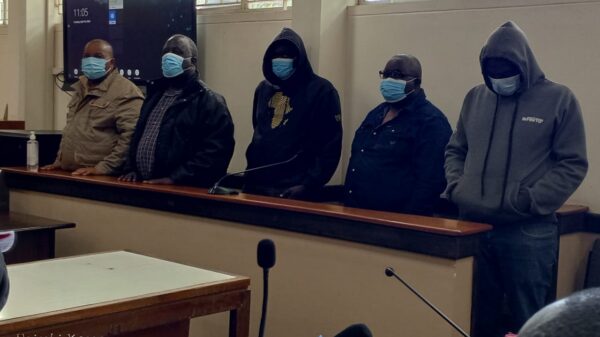WASHINGTON, September 23 – US Treasury Secretary Henry Paulson was to testify in Congress Tuesday as lawmakers pressed on with tough negotiations on a 700-billion-dollar bailout for the US economy and world markets tumbled.
Paulson, who has urged Congress to swiftly adopt the unprecedented rescue plan under pressure from President George W. Bush and global markets to produce quick results, was to appear before the Senate banking committee on Tuesday.
Lawmakers said brisk talks toward a deal by week\’s end included an agreement that the US Treasury could acquire some equity from banks in exchange for bailing out bad debts, and an accord on an oversight plan.
But as US, European and Asian markets tumbled amid impatience and uncertainty with the process, some senior politicians warned they would not be hurried into agreeing to the biggest US bailout since the Great Depression of the 1930s.
"There are a lot of issues but discussions are good," said a spokesman for Paulson.
While all seem to agree on the urgency of the moment, with elections looming on November 4 some lawmakers — who hold the country\’s purse strings and must approve the bailout — are seeking to extract the maximum in return for agreeing the package.
And there are concerns about the unprecedented power that the US government would have in the financial markets, and whether it would find itself saddled with a gigantic debt.
"Failure to act would have broad consequences," Bush said, after warning last week that a significant amount of tax dollars could be used in the bid to throw a lifeline to hundreds of struggling financial institutions.
"Americans are watching to see if Democrats and Republicans, the Congress and the White House, can come together to solve this problem with the urgency it warrants," the US president said in a statement.
"Indeed, the whole world is watching to see if we can act quickly to shore up our markets and prevent damage to our capital markets, businesses, our housing sector, and retirement accounts."
House of Representatives leader Nancy Pelosi said after talks on the plan on Capitol Hill that Democrats and Republicans in the US legislature had participated in a "bipartisan conversation between the legislative branch and the executive branch."
Pelosi said lawmakers understand the urgency of finishing up the measure "as quickly as possible," but said it was also important that Congress make sure that the proper checks and balances were in place.
"We are not sending a blank check to Wall Street," Pelosi said.
Senate Majority Leader Harry Reid, a Democrat, signaled he was not going to be bullied into a quick agreement.
"The Bush administration has called on Congress to rubber-stamp its bailout legislation without serious debate or efforts to improve it. That will not happen," Reid said.
Leaders of the Democratic-controlled Congress have voiced support for the plan to buy the toxic mortgage-related assets of financial institutions.
But they have also called for oversight, help for ordinary Americans hammered by the worst housing slump in decades, and curbs on what they call excessive compensation for top executives.
Media reports have said that banks may be asked to give up part of their equity to a new government fund that would serve as a last resort buyer for bad mortgages and other debt in order to rescue banks\’ balance sheets.
Some Republicans, while arguing that the plan should not be substantially tinkered with as it passes through the House and Senate, have also urged careful consideration.
"While there is no doubt a growing crisis in our financial markets, we must not rush to act in a manner that worsens or creates an additional crisis for American families and taxpayers," said Jeb Hensarling, chairman of the House Republican Study Committee.
But both US and European markets fell back badly Monday, and Asian share prices tumbled in early trade Tuesday as doubts mounted over whether the US rescue package could avert an economic meltdown.
On Wall Street, worries about whether the plan would pass Congress and how it might be implemented set off another rush into safe haven assets like gold and oil while the dollar tumbled. Crude prices saw their biggest one-day jump in history in New York.
The Dow Jones Industrial Average plunged 3.27 percent Monday to end at 11,015.69, giving back its gains from Friday\’s rally. The Nasdaq composite slumped 4.17 percent and the Standard & Poor\’s 500 index shed 3.82 percent.
Hong Kong shares were down 2.2 percent in early Tuesday trade, China\’s benchmark index fell almost one percent and Singapore shares slid 1.84 percent.


































